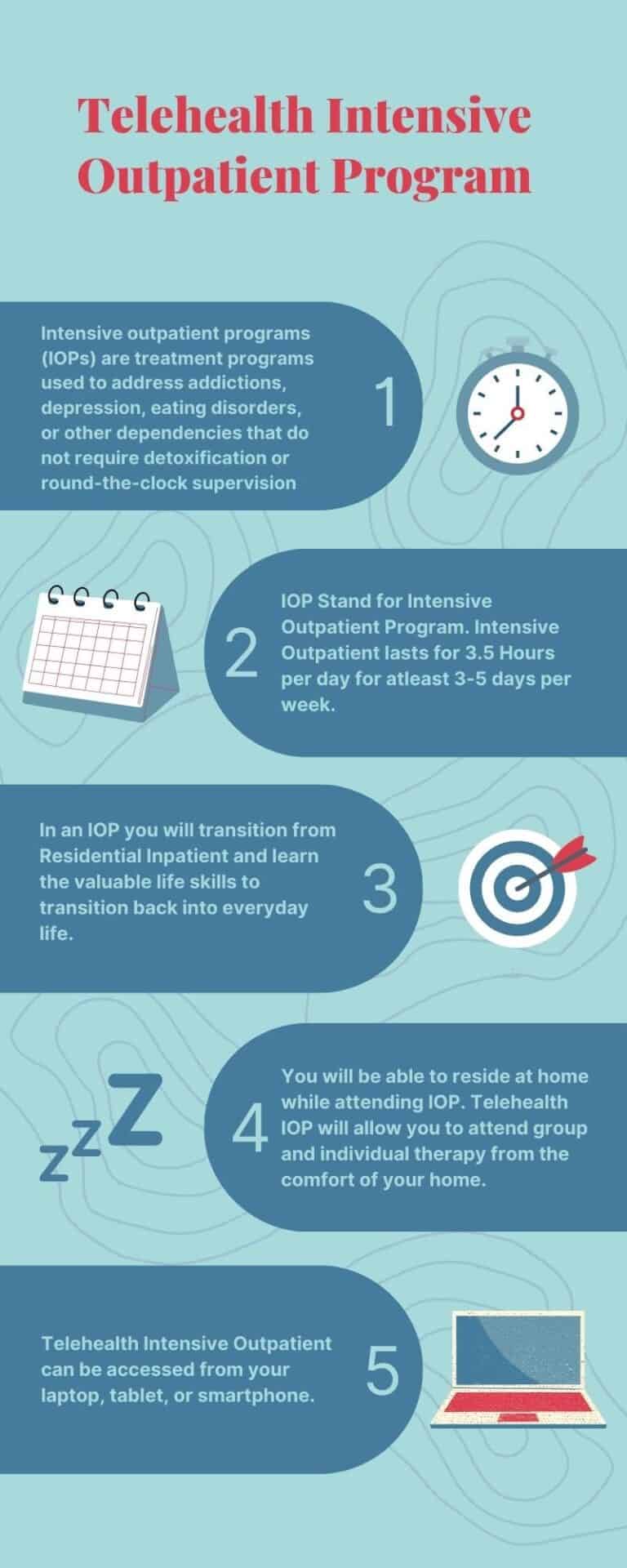How an Intensive Outpatient Program (IOP) Can Assistance Your Mental Health Journey.
Wiki Article
Navigating the Complexities of Dual Diagnosis Treatment Within an Intensive Outpatient Program Establishing
In the world of psychological wellness and addiction therapy, the intersection of double diagnosis presents a nuanced challenge that requires a comprehensive and customized strategy. Within the boundaries of an Extensive Outpatient Program (IOP) setting, the intricacies of attending to co-occurring mental health and wellness disorders and compound make use of conditions require a delicate equilibrium of experience and sources to browse. The combination of evidence-based practices, collective initiatives amongst multidisciplinary teams, and an eager understanding of the one-of-a-kind requirements of each individual are important parts in properly handling twin diagnosis within an IOP structure. By exploring the complexities of double medical diagnosis therapy within this extensive outpatient context, a more clear path arises towards holistic and sustainable recuperation for those coming to grips with these intertwined obstacles.Twin Medical Diagnosis Introduction
What is the importance of recognizing double medical diagnosis in psychological health treatment? Dual medical diagnosis refers to the co-occurrence of a material use problem and a mental health and wellness problem in a person. It is important to identify and address this comorbidity as it can considerably impact the performance of mental health treatment. Without appropriate recognition and management of both conditions, individuals may battle to accomplish long-term recovery and stability.Understanding twin medical diagnosis is vital as it requires a thorough and incorporated strategy to therapy. By acknowledging the interaction in between compound use and psychological wellness, medical care companies can customize interventions to fulfill the special requirements of each individual. This alternative method not only addresses signs and symptoms but also targets underlying aspects that add to the dual medical diagnosis.
In addition, unattended double medical diagnosis can lead to a cycle of regression and aggravating psychological wellness signs and symptoms. By acknowledging the intricacy of dual medical diagnosis and providing specific care, healthcare professionals can support people in accomplishing lasting recovery and improved psychological wellness.
Tailored Therapy Plans
Recognizing the intricate interaction between material use conditions and psychological wellness problems, the development of tailored treatment strategies is paramount in dealing with the intricacies of double diagnosis in psychological wellness treatment. Tailored therapy plans are individualized strategies that take into consideration the distinct demands, difficulties, and goals of people encountering double diagnosis. These strategies are developed collaboratively by a multidisciplinary team of specialists, including psychoanalysts, psycho therapists, social employees, and dependency specialists, to guarantee extensive and integrated care.Tailored treatment plans typically involve a combination of therapies, drugs, and behavior treatments that target both the compound use disorder and the psychological health and wellness condition at the same time. These plans may include cognitive-behavioral therapy, dialectical behavior modification, medication-assisted treatment, individual therapy, team treatment, and household therapy, amongst various other evidence-based treatments. By tailoring treatment strategies to individual circumstances, customized strategies can attend to the source of twin diagnosis, promote long-term recovery, and boost total lifestyle for individuals battling with co-occurring conditions.
Integrated Treatment Approach

Additionally, the social facet of incorporated care includes attending to ecological aspects that might add to the advancement or perpetuation important use and psychological health and wellness issues. This can include family members characteristics, housing instability, or lack of social assistance. By integrating social treatments like family members therapy, trade assistance, and community resources, the therapy comes to be extra alternative and customized to the person's certain requirements. In general, an incorporated treatment technique in twin medical diagnosis treatment within an extensive outpatient program setup aims to offer extensive, reliable, and personalized care to individuals facing co-occurring conditions.
Obstacles in IOP Setting
In the context of dual medical diagnosis treatment within an intensive outpatient program, navigating the intricacies of co-occurring compound usage problems and mental health problems presents substantial obstacles. One of the main obstacles in the IOP setting is the coordination of care in between psychological wellness specialists and chemical abuse experts to guarantee a detailed treatment method. This needs effective communication, partnership, and a deep understanding of exactly how these conditions interact and influence each various other.In addition, the changing nature of compound usage problems and psychological wellness problems includes an additional layer of intricacy - Intensive Outpatient Program (IOP). Clients in an IOP may experience abrupt shifts in their signs and symptoms or compound food cravings, requiring prompt treatment and adjustment of treatment methods. Balancing the intensity of therapy and assistance while enabling customers the adaptability to handle their everyday responsibilities can be a delicate stability to keep
Moreover, addressing preconception and resistance to therapy within the IOP setup can hinder progress. Some individuals might be reluctant to reveal their double diagnosis or may feel ashamed, impeding their interaction in the therapeutic process. Conquering these obstacles demands a supportive and non-judgmental atmosphere that cultivates trust fund and openness.

Collaborative Expert Efforts

Collective efforts also encompass routine interaction and details sharing amongst employee to guarantee a natural therapy approach - Intensive Outpatient Program (IOP). This might entail that site case seminars, joint sessions with the client, or shared paperwork to track development and readjust therapy approaches as needed. In addition, partnership might include entailing various other Look At This medical care specialists such as medical care medical professionals or family therapists to give holistic assistance to the client. Eventually, an unified front of professionals functioning with each other improves the efficiency of twin diagnosis treatment within an extensive outpatient program.
Final Thought
Finally, reliable twin diagnosis therapy within an intensive outpatient program setting requires customized treatment plans and an incorporated care method. Difficulties might arise in this setting, but joint efforts among specialists can aid browse these intricacies. By attending to the unique needs of individuals with co-occurring mental health and material utilize conditions, IOP programs can offer thorough and all natural like sustain recovery and general health.Report this wiki page